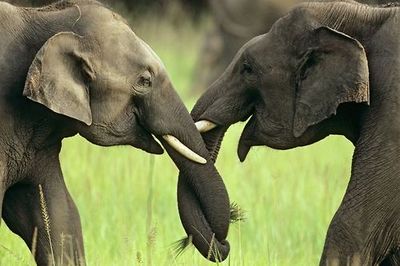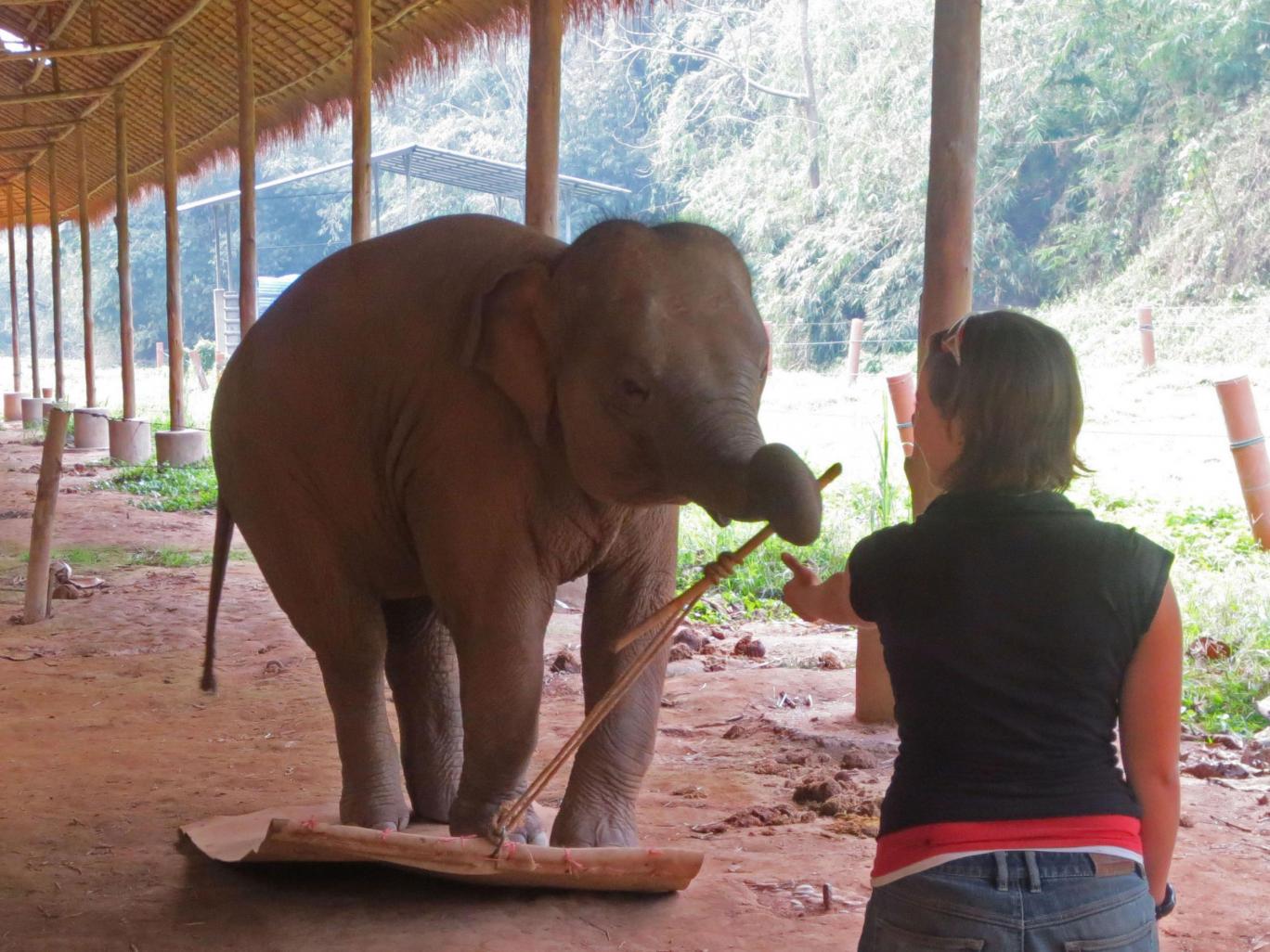BREAKTHROUGH: Consoling words or a gentle touch of a friendly hand are sometimes all that is needed to lift your mood at times when you feel sad or distressed. But new evidence finds that using physical touches and vocalizations is not a human behavior alone but elephants too are able to console each other in times of distress this way. The study was conducted by Emory University and Think Elephant International on Asian elephants and is the first proof of the emotional support jumbos provide each other.
It has been known for centuries that elephants are highly intelligent animals, remembering forest routes they took, places where water is available etc. The elephants have also been observed to mourn when a fellow member of their herd passes away. But lead author Joshua Plotnik who conducted the study to find empirical evidence of the consoling behavior says,
“For centuries, people have observed that elephants seem to be highly intelligent and empathic animals, but as scientists we need to actually test it.”
Plotnik began work on the study as a graduate student. He has since received his PhD from Emory and currently lectures on conservation biology at Mahidol University in Thailand. He is also the CEO of Think Elephants International, which focuses on education and conservation.
Touch and Care
For the study he focused on a group of 26 captive Asian elephants at a camp in Thailand who were observed for a period of one year and their reactions noted when in a stressful situation. The stress could have been caused by presence of another unfriendly elephant for example.
“When an elephant gets spooked, its ears go out, its tail stands erect or curls out, and it may emit a low-frequency rumble, trumpet and roar to signal its distress,” Plotnik says.
During these times the researchers observed that the elephants would move close to each other and the distressed animal was frequently touched. The physical contact included touching the animals face with a trunk or putting a trunk into the animal’s mouth. This gesture is the elephant equivalent of a handshake or hug according to Plotnik.
“It’s a very vulnerable position to put yourself in, because you could get bitten. It may be sending a signal of, ‘I’m here to help you, not hurt you.”
The elephants who were trying to console another also tried to vocalize.
“The vocalization I heard most often following a distress event was a high, chirping sound,” Plotnik says. “I’ve never heard that vocalization when elephants are alone. It may be a signal like, ‘Shshhh, it’s okay,’ the sort of sounds a human adult might make to reassure a baby.”
Empathy for fellow creatures has also been observed in other animals like Primates and Canids. Co-author Frans de Waal points out that the empathy that elephants show is not different from what humans or chimps show.
“With their strong social bonds, it’s not surprising that elephants show concern for others,” says co-author Frans de Waal, an Emory professor of psychology and director of Living Links at Emory’s Yerkes National Primate Research Center. “This study demonstrates that elephants get distressed when they see others in distress, reaching out to calm them down, not unlike the way chimpanzees or humans embrace someone who is upset.”
The researcher would next like to study the same behavior in wild elephants. The present study was published in the open access journal Peer J.
Plotnik aptly concludes – “Humans are unique in many ways, but not in as many ways as we once thought.”
Wild population of Asian elephants have been facing a number of threats in the past few years like poaching, habitat destruction resulting in conflicts with humans, frequent train hits and more. According to International Union for Conservation of Nature (IUCN) Red List of threatened species the Asian elephant is marked Endangered (EN) because of population reduction of more than 50 percent over last three generations. A recent estimate for the global population size of the Asian elephant was 41,410–52,345 animals with 26,000-30,000 approximately found in India.
More Related Stories,
Supreme Court Plays Traffic Cop: Trains to Slow Down for Elephants
Twin Tragedy for Elephants in Bengal
A Tiger’s Growl to Keep Elephants Away
Image via cc/Flickr by Shankar S











That is so true..I have come across several articles that suggest the same. Elephants do console each other when they are not comfortable. They sooth each other in a great way. I have also known that they cry like humans when an unpleasant event takes place 🙁
Elephants are highly intelligent animals Anushri and their family bonding is very strong. Mourning the death, females looking after all the calves of the herd, and a matriarchal family reflect their strong ties and strong female led society as well.